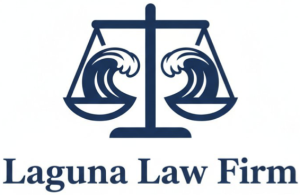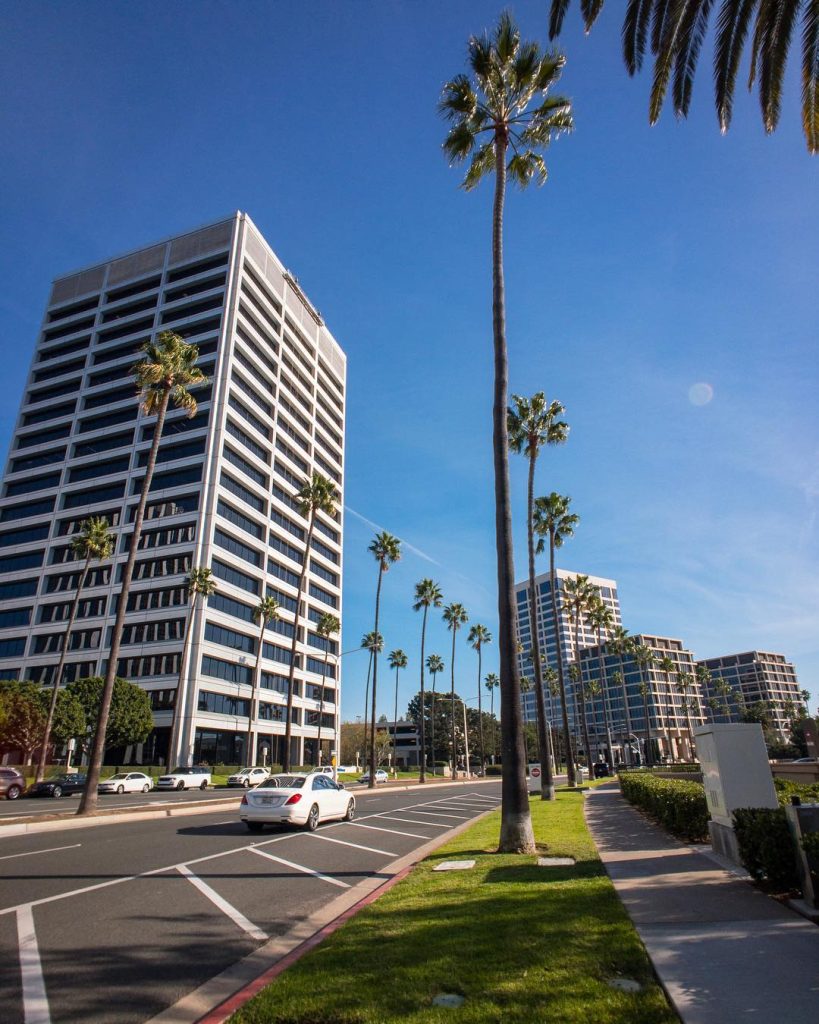Navigating a workers’ compensation claim in California can be challenging, especially when insurance companies deploy surveillance evidence to dispute your case. If you’re an injured worker seeking fair compensation, the idea of being watched by private investigators can feel intrusive and intimidating. At Laguna Law Firm, we specialize in helping injured workers overcome these tactics and secure the benefits they deserve. Contact us at (949) 930-1386 or visit lagunalawfirm.com for a free consultation with our experienced California workers’ compensation attorneys.
In this in-depth guide, we’ll break down everything you need to know about surveillance evidence in workers’ comp cases, including how it’s used, how to protect your claim, and strategies to turn the tables on insurance companies. Optimized for injured workers searching for legal help for workers’ comp in California, this article will empower you to navigate surveillance challenges with confidence. Let’s get started.
Understanding Surveillance Evidence in Workers’ Compensation Claims
Surveillance evidence refers to materials like videos, photos, or audio recordings collected by insurance companies to monitor injured workers. The purpose? To find evidence that might contradict the severity of your injury or the legitimacy of your California workers’ compensation claim. For example, if you report a shoulder injury that limits your mobility, but surveillance footage shows you playing catch with your kids, insurers may argue that your injury isn’t as serious as claimed.
However, surveillance isn’t a guaranteed win for insurance companies. With the right legal strategy, you can challenge its validity or even use it to support your case. At Laguna Law Firm, our attorneys are skilled at dissecting workers’ compensation surveillance evidence to protect your rights and maximize your benefits.
Types of Surveillance Evidence
Insurance companies use various methods to gather evidence, including:
- Video Surveillance: Private investigators may follow you in public, at home, or near your workplace to record activities that seem inconsistent with your reported injuries.
- Photographic Evidence: Snapshots of you performing tasks like lifting or bending can be used to question your disability claims.
- Social Media Scrutiny: Insurers often monitor platforms like Instagram, X, or LinkedIn for posts that could undermine your case, such as photos of you hiking or working out.
- Interviews and Statements: Investigators may talk to neighbors, coworkers, or acquaintances to gather information about your daily activities.
Understanding these tactics is crucial for injured workers seeking legal help for workers’ comp claims. Let’s explore how surveillance impacts your case and how to respond effectively.
How Surveillance Evidence Affects Your Workers’ Comp Case
Surveillance evidence can influence your California workers’ compensation case in several ways, but it’s not an automatic defeat. Here’s how it typically plays out:
- Disputing Injury Severity: Insurers may use footage to argue that your injury doesn’t warrant the benefits you’re seeking, such as temporary disability payments or medical treatment.
- Alleging Fraud: In rare cases, surveillance may lead to accusations of fraud, potentially threatening your entire claim.
- Pressuring Settlements: The presence of surveillance evidence can intimidate claimants into accepting lower settlements to avoid further scrutiny.
Fortunately, California’s workers’ compensation laws protect injured workers. Surveillance evidence must meet strict criteria to be admissible, including relevance, authenticity, and legal acquisition. At Laguna Law Firm, we meticulously analyze surveillance to identify flaws, such as:
- Lack of Context: A brief video clip may misrepresent your condition by omitting critical details, like pain or recovery periods.
- Privacy Violations: Evidence obtained illegally, such as recordings inside your private property, may be thrown out in court.
- Irrelevant or Outdated Footage: Surveillance that doesn’t reflect your current medical condition or restrictions can be challenged.
With the help of a skilled workers’ compensation attorney in California, you can counter surveillance evidence and strengthen your claim.
6 Essential Steps to Handle Surveillance Evidence
To protect your workers’ comp claim and navigate surveillance challenges, follow these actionable steps:
1. Be Truthful About Your Injuries
Honesty is the cornerstone of a successful workers’ comp case. Always provide accurate details about your injury, limitations, and symptoms to your doctor, employer, and attorney. Inconsistencies between your statements and surveillance footage can weaken your case. For example, if you claim you can’t lift heavy objects but are filmed carrying a heavy bag, insurers may use this to dispute your claim.
Expert Tip: Maintain a detailed log of your symptoms, activities, and pain levels. This record can provide context if surveillance footage is presented, showing that any filmed activity was a one-time event or within your medical restrictions.
2. Follow Your Doctor’s Orders
Your treating physician’s records are critical in validating your injury. Regular check-ups and detailed medical reports can confirm your limitations and support your claim. If surveillance evidence shows you performing an activity, your doctor can clarify whether it aligns with your treatment plan. For instance, light exercise might be encouraged for recovery, countering the insurer’s narrative.
At Laguna Law Firm, we work closely with your medical team to ensure your records align with your claim, bolstering your case against surveillance evidence.
3. Protect Your Social Media Presence
Social media is a common source of surveillance evidence. A single post showing you at a family barbecue or lifting weights could be misconstrued as proof of recovery. To safeguard your claim:
- Make Accounts Private: Restrict access to your social media profiles to prevent investigators from viewing your content.
- Avoid Case-Related Posts: Don’t share details about your injury, activities, or legal proceedings online.
- Control Tagged Content: Ask friends and family to avoid tagging you in photos or posts that could be misinterpreted.
Our team at Laguna Law Firm can advise you on minimizing social media risks to protect your workers’ comp case.
4. Partner With a Skilled Workers’ Compensation Attorney
Facing surveillance evidence without legal support can be overwhelming. An experienced attorney can turn the tide in your favor. At Laguna Law Firm, we:
- Analyze Surveillance Footage: We review evidence for inaccuracies, lack of context, or legal violations.
- Challenge Admissibility: We ensure surveillance meets California’s legal standards and file motions to exclude improper evidence.
- Build a Robust Case: We gather medical records, expert testimony, and other evidence to counter insurer tactics.
Don’t let surveillance derail your claim. Contact Laguna Law Firm at (949) 930-1386 or visit lagunalawfirm.com for expert legal guidance.
5. Prepare for Depositions and Hearings
If surveillance evidence is introduced, you may face questions during a deposition or workers’ comp hearing. Be ready to explain any activities shown in the footage. For example, if you’re filmed bending to pick up a light object, clarify that it was within your doctor’s guidelines. Your attorney can help you rehearse responses to stay confident and consistent.
6. Know Your Legal Rights
California law protects injured workers from unfair surveillance practices. Evidence must be obtained legally and be relevant to your claim. Insurers cannot use surveillance to harass or intimidate you. If you suspect illegal surveillance, such as recordings in private spaces, report it to your attorney immediately.
Turning Surveillance Evidence to Your Advantage
Surprisingly, surveillance evidence can sometimes strengthen your case. For example, footage showing you struggling with daily tasks or adhering to medical restrictions can reinforce the severity of your injury. At Laguna Law Firm, we analyze surveillance to identify opportunities to support your claim, ensuring every piece of evidence works in your favor.
Why Choose Laguna Law Firm for Your Workers’ Comp Case?
At Laguna Law Firm, we’re committed to helping injured workers in California navigate complex workers’ compensation claims, including those involving surveillance evidence. Here’s why we’re the right choice:
- Free Consultations: We offer no-cost, no-obligation consultations to evaluate your case and discuss surveillance challenges.
- Tailored Strategies: We craft personalized legal plans to address your unique situation and goals.
- Proven Expertise: Our attorneys have a track record of success in countering insurance company tactics and securing maximum benefits.
Whether you’re facing a denied claim, reduced benefits, or invasive surveillance, Laguna Law Firm is here to fight for you. Call (949) 930-1386 or visit lagunalawfirm.com to schedule your free consultation today.
Debunking Myths About Surveillance Evidence
Let’s clear up some common misconceptions that can worry injured workers:
- Myth 1: Surveillance Always Destroys Your Case
Not true. Surveillance is just one piece of evidence, and with proper context, it can often be neutralized or used to support your claim. - Myth 2: You Can’t Challenge Surveillance Evidence
False. A skilled attorney can dispute the relevance, authenticity, or legality of surveillance, potentially rendering it inadmissible. - Myth 3: Insurers Can Record You Anywhere
Wrong. California law prohibits surveillance in private spaces like your home without consent. Illegal evidence can be excluded from your case.
Expert Tips to Strengthen Your Workers’ Comp Case
To ensure your claim holds up against surveillance, follow these tips:
- Adhere to Medical Restrictions: Follow your doctor’s advice to avoid activities that could be misinterpreted.
- Document Your Condition: Keep a detailed record of your symptoms, medical visits, and limitations.
- Report Suspicious Activity: If you notice potential surveillance, like unfamiliar vehicles, inform your attorney immediately.
- Be Mindful in Public: Assume you’re being watched in public spaces and avoid activities that could be misconstrued.
Frequently Asked Questions About Surveillance Evidence
Can surveillance evidence lead to a denied workers’ comp claim?
Not automatically. Surveillance must be relevant and legally obtained to impact your case. An attorney can challenge its validity or provide context to support your claim.
What should I do if I think I’m being followed?
Document any suspicious activity, such as unfamiliar individuals or vehicles, and contact your attorney immediately. Avoid confronting investigators.
How does social media affect my workers’ comp case?
Posts or photos that appear to contradict your injury can be used as evidence. Keep your profiles private and avoid sharing case-related details.
Why hire a workers’ compensation attorney?
An attorney can analyze surveillance, challenge its admissibility, and build a strong case to secure your benefits. Laguna Law Firm offers expert guidance tailored to your needs.
Conclusion: Take Control of Your Workers’ Comp Case
Surveillance evidence can feel like a violation, but it doesn’t have to derail your California workers’ compensation claim. By staying honest, following medical advice, protecting your online presence, and working with an experienced attorney, you can counter insurance company tactics and secure the benefits you deserve. At Laguna Law Firm, we’re dedicated to fighting for injured workers, ensuring you receive fair compensation for medical bills, lost wages, and more.
Don’t let surveillance intimidate you. Contact Laguna Law Firm at (949) 930-1386 or visit lagunalawfirm.com for a free consultation. Let our skilled California workers’ compensation attorneys guide you through the process and help you reclaim your future.



